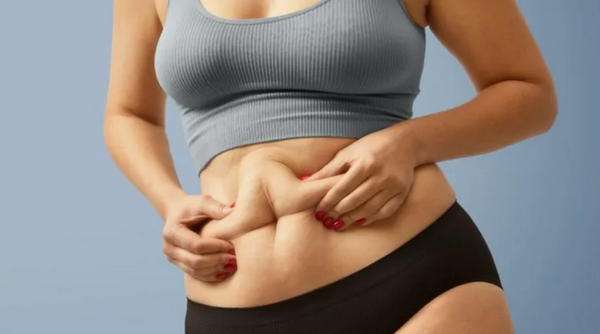
Doctors told which products help and which interfere with weight loss
If you decide to lose weight, it is important to pay attention not only to the amount eaten, but also to the composition of the products. Which products are better to give up, and which ones to focus on, what are the harmful trans fats and how to reduce their consumption.
It is worth remembering not only about the quality, but also about the quantity of products, as well as to observe the diet. Eat regularly 3-4 times a day, eat one dish at a time.
Which products are better to give up, and which ones to focus on
The main task is to ensure a moderate energy deficit in the body so that the accumulated excess of fatty tissue begins to gradually burn out. To do this, the food must be low-calorie.
Those who want to lose weight should forget about such products:
- confectionery products
- bread and pasta made of premium flour
- mayonnaise
- butter, dairy products with a high percentage of fat content
- sausages, sausages
- fast food
- red meat
- seeds, nuts
- carbonated drinks
- alcohol.
Such products will help you lose weight:
- fresh vegetables (tomatoes, cucumbers, bell peppers, radishes, cabbage, carrots, celery – the more flowers in the plate, the better)
- whole grain products (bread, pasta)
- poultry meat (chicken, turkey)
- low-fat white fish (cod, pollock, flounder, pike, etc.)
- legumes (lentils, chickpeas, mash)
- stewed mushrooms
- seafood
- unrefined cold-pressed vegetable oil for salad dressing (olive, sunflower, linseed, corn, avocado oil).
To account for the number of products, you can use the principle of a "proper nutrition plate" developed by scientists from Harvard University:
- take a standard plate with a diameter of approximately 20 cm
- ½ part of the plate will be occupied by vegetables and a small amount of fruit
- ¼ will take the main (protein) dish, preferably poultry or fish
- ¼ – side dish (porridge, bread, pasta, potatoes)
- fill with a small amount of vegetable oil
- take a sufficient amount of liquid per day – about 2 liters / day.
What foods contain trans fats?
It is worth noting that trans fats can be natural and artificial. Natural trans fats are found in meat and dairy products, they are formed as a result of animal activity and, according to recent data, do not pose a significant danger to the body.
Particular attention should be paid to products containing artificial trans fats:
- margarine,
- refined vegetable oils,
- deep-fried fast food,
- frozen semi-finished products and ready meals,
- chips, popcorn,
- chocolate and confectionery,
- ice cream.
For how long is it better to exclude them from your diet?
With a full diet, it is almost impossible to completely exclude trans fats, but according to WHO recommendations, their share should not exceed 1% of the caloric content of the daily diet. It is advisable to observe this restriction constantly. If a low-calorie diet is observed, it is undesirable to take more than 2 g of trans fats per day.
How can they be replaced?
The main source of trans fats is margarine and fast food. It is also recommended to study the labels of purchased products in order to limit the consumption of trans fats, which are usually designated as "margarine", "partially hydrogenated oils", "cooking fat", "solid vegetable oil".
The main alternative to margarine is butter, but do not forget about its high calorie content, which can also complicate weight loss. When losing weight, it is also advisable to limit the amount of butter.
As sources of fats useful for the body, it is better to prefer unrefined cold-pressed vegetable oils (olive, sunflower, linseed, sesame, rapeseed, pumpkin, coconut). It is better to limit trips to fast food restaurants to 1 time per month or exclude them altogether.
At what alarming symptoms should you stop eating them urgently?
Consumption of trans fats can lead to an increase in blood cholesterol, contribute to the development and progression of atherosclerosis, coronary heart disease, diabetes mellitus. There is some data on the relationship between trans fat consumption and the development of cancer.
An increase in cholesterol and blood glucose levels in the early stages often does not make itself felt, therefore, as part of taking care of your health, it would be useful to check these indicators in the laboratory once a year. If a deviation in these tests is detected, and especially if the doctor confirms atherosclerosis or diabetes, it is necessary to significantly limit the intake of trans fats.
It is also worth noting the symptoms of the above diseases, in which it is necessary to consult a doctor: increased blood pressure, constant headaches, tinnitus, memory and attention impairment, chest pain, shortness of breath, leg pain, dry mouth, thirst, frequent and copious urination, causeless rapid change in body weight.











